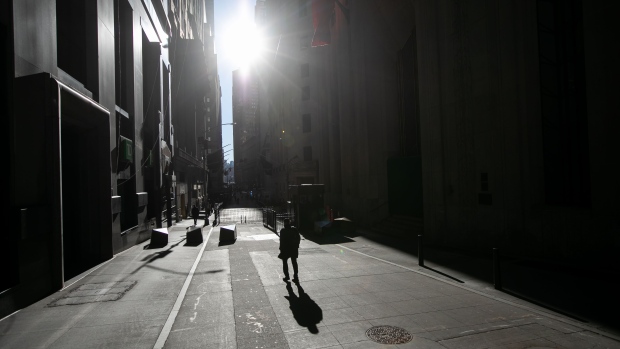Mar 6, 2024
Muni Investors Stage Rare Effort to Challenge $1 Billion Deal
, Bloomberg News

(Bloomberg) -- A group of investors is challenging a $1 billion municipal bond refunding by the Regents of the University of California.
The bondholders said there’s “no legal basis” to allow the refinancing, according to a copy of a letter seen by Bloomberg News and people with knowledge of the matter. The debt was priced on Tuesday.
The deal is part of a wave of planned refundings that would replace taxable debt sold under the Build America Bonds program more than a decade ago with lower-yielding, tax-exempt securities. Some investors are questioning their legality, which hinges on a provision in the bond documents that allows state and local governments to buy back their debt before it comes due if an extraordinary event occurs.
“This group of registered bondholders (or their investment manager, investment advisor or subadvisor) believes unequivocally that the University has no legal basis to redeem any of the above securities pursuant to exercising the Extraordinary Optional Redemption provisions,” the investors wrote in the letter dated March 4 and addressed to the trustee.
The investors claim that Bank of New York Mellon Corp., the trustee, is prohibited from redeeming the debt and that executing that redemption constitutes “a violation of bondholder rights,” according to the letter.
Representatives for the university and Bank of New York Mellon declined to comment.
It’s rare for money managers to join together to try to challenge a muni transaction – especially one of this size. Broadly speaking, these particular refinancing deals have caused ire among investors who can face losses. Two investors, who declined to be identified because they weren’t authorized to speak on the matter, confirmed the contents of the letter.
Read More: Obama-Era Muni Bonds Begin to Dwindle On Treasury Market Quirk
Nearly all of the roughly $100 billion of outstanding Build America Bonds include language for this kind of call option, known as an extraordinary redemption provision. Strategists at Barclays Plc estimate that $30 billion may be refinanced this year using the call. That could create a windfall for the banks that bring the deals to market.
The debate of the refinancings may drag on. “We live in a land of case law, and we are about to get a good case.” said Ron Fielding, a now-retired former municipal-bond executive. “It’s untested land.”
Extraordinary Event
The letter targets a deal this week in which the University of California sold $1.1 billion of tax-exempt bonds in an offering managed by Jefferies Financial Group Inc. Proceeds of the sale are expected to be used to refinance debt sold by the school in 2009 and 2010.
A spokesperson for Jefferies declined to comment.
Issuers exercising the call argue that federal budget cuts ushered in a over a decade ago reduced the interest-payment subsidies on Build America Bonds, constituting a so-called extraordinary event and therefore triggering the provision.
But in their letter, the investors argue that governments only have the power to use the call option under an “extraordinary event.” They say that the 5.7% cut to the subsidy is not “material.” They also say that a change to the Internal Revenue code is required to trigger the call.
Until recently, governments have largely opted not to refinance their debt because the economics didn’t make sense. But banks, who are pitching refinancings to issuers, say the recent outperformance of tax-exempt debt pushed yields well below those on taxable securities, giving them an opportunity to save.
Some deals have already taken place. In February, the Maryland Transportation Authority was among the first to exercise the call by issuing about $623 million of tax-exempt bonds to replace older taxable debt, saving roughly $21 million.
The Los Angeles Department of Water and Power is also planning a large refinancing next week which includes the potential refunding of Build America Bonds and other securities.
In a February report, Barclays strategists noted that the deals may negatively affect investors and also reduce their desire to participate in future sales by issuers that call bonds.
“Even though credit spreads are trading at their tightest ever levels, calling BABs might result in only marginal savings for issuers, which will likely make them think twice about going down this route,” the report said.
(Updates with further details on upcoming bond deal and a quote from a retired municipal bond executive)
©2024 Bloomberg L.P.






